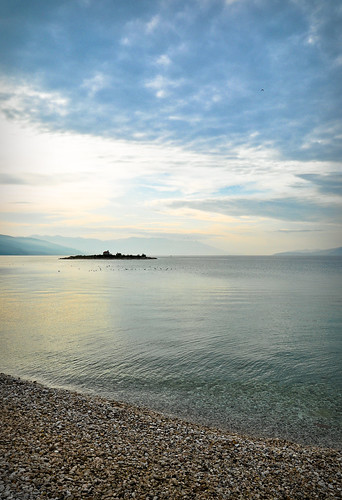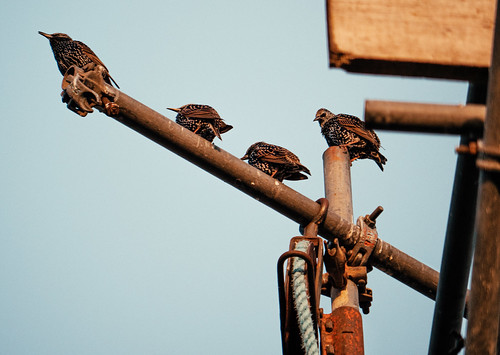From the category archives:
Academia
I wrote this for Public Ethics, addressing one of the theses from Feminism for the 99%, which claims that “liberal feminism is bankrupt.” That thesis reduces liberal feminism to corporate feminism or lean-in feminism. Against that reduction, I suggest that: “Properly understood, liberal feminism is radically egalitarian feminism—both as feminism and as liberalism. Properly situated, the values it espouses demand structural reform to redress economic disadvantage. That’s why, as a liberal feminist, I agree with the manifesto’s criticism of lean-in feminism.”
I then consider why, if liberal feminism properly understood is radically egalitarian, so many liberal feminist seem to be more focused on the women “breaking the glass ceiling” than on the women left to “clean up the shards.” One part of the answer:
“Liberalism offers a strong evaluative grounding for demands of justice on behalf of women across the social hierarchy—and indeed for demands that that hierarchy be demolished. The social subordination to which we subject the women sweeping up the shards is unjust on grounds of the freedom and equality that liberalism celebrates. Precisely because I think liberal feminism furnishes compelling diagnoses of these injustices and illuminating prescriptions for rectification, it strikes me as important to address the hard cases that it faces. These are cases wherein apparent choice seemingly shields inequity from censure—the cases that have long been regarded…as poison for liberal feminists. Redeeming liberalism’s promise as a radical evaluative framework requires addressing the cases wherein deference to choice appears to be justice-undermining. For liberal feminists, this notably includes cases of apparently voluntary compliance with gender norms, including gender norms about caregiving.”
I conclude that “liberalism can be a tool for building the movement this catastrophic moment demands—and it’s a tool the movement should be slower to cast aside.”
A brief note stating my view of the decision of the British government to award leading “gender-critical feminist” and philosopher Kathleen Stock the Order of the British Empire for “services to higher education”. Nobody thinks that Stock has been awarded this honour for her work in aesthetics, nor that she has made contributions to higher education in the UK that exceed those of thousands of other university employees. Rather, Stock’s award has to be seen as just another example of Boris Johnson’s government using its powers of patronage to prosecute an “anti-woke” culture war. Other examples of this were the appointments of David Goodhart and Jess Butcher to the Equalities and Human Rights Commission and the granting of a peerage to a leading member of the Spiked! (ex-Revolutionary Communist Party) network, Claire Fox. Many of these decisions appear to have been taken at the behest of Trade (but also Equalities) minister Liz Truss, who recently made a bizarre speech name-checking Foucault and suggesting that local councils, somehow influenced by Foucault, had put race and gender equality ahead of teaching children to read and write. Truss has also made a point of referencing the conflicts around trans rights in articles for the Daily Mail. Goodhart, the new EHRC commissioner, has been a vocal supporter of the “hostile environment” policy that led to the UK’s Windrush scandal; Butcher is on record as saying that women who are subject to workplace discrimination should find ways round the problem rather than bringing formal complaints. Nobody reflecting on the values and agenda that led to Butcher’s appointment can believe that the government which gave Stock an OBE has a serious commitment to the interests of women. In a parallel case in which the Trump administration had used its powers of patronage to honour “gender-critical feminists”, I have no doubt that American philosophers who have applauded Stock’s award would see it for what it is: the instrumentalization of discretionary power to fight the culture war. I’ve deliberately avoided going into Stock’s views in this post, although I am not a fan. Rather, I’ve confined myself to things that everyone on this side of the Atlantic who is reasonably well-informed about the facts, including, I suspect, Stock herself, knows to be true. (Comments turned off on this post.)
A new regular feature on CT! Once a week, we’ll be posting an open thread, where you can post on any topic you like, subject to the usual moderation rules.
The other purpose of this regular post will be to deal with thread derailment. An example is a recent thread on Brexit which deviated into a lengthy analysis of labelling rules for marmalade and chocolate. Disputes of this kind will be directed to the open thread, where the participants can argue to their hearts’ content.
The first suggested topic for discussion: what should we call this feature? The current title is not very imaginative, so feel free to suggest something better. Is Marmalade and Chocolate too obscure?
I’ve just finished watching Netflix’s new Turkish miniseries Ethos, set in Istanbul and directed by Berkun Oya. This has been very little reviewed in the Western press, as far as I can see. The Guardian’s what-to-watch for December doesn’t even mention it. And yet, I think it is one of the most compelling dramas I have seen for a while. The eight episodes link characters from diverse backgrounds linked through Meryem, a hijab-wearing house cleaner who is seeing a psychiatrist, Peri, because of recurring fainting episodes. She lives with her brother, the permanently angry Yasin, a nightclub bouncer and his depressive wife Ruhiye. Meryem cleans the flat of Sinan, a philandering playboy. We get to see a spectrum of Turkish life from devout village people to sophisticated urbanites and a world where women actually dominate the action (the men are passive, confused, at the mercy of events). The soundtrack is wonderful and the acting superb, as is the lingering cinematography. I’ve avoided posting spoilers, which disables me from saying too much about what happens, but it might help to know that Gülbin’s family is Kurdish, and to be primed to think about what is happening when the Hodja’s daughter, Hayrünnisa, leaves the house in the final episode. Some of the interest is Turkey-specific but there’s much that’s more universal, such as the clash between the educated urban set and the more religious “rednecks” from out of town. Give it a try!
I took part in a debate today with Martin Ruhs (Oxford) for Migration Mobilities Bristol on labour migration. I’ll put in a link to the full discussion when it is available, but meanwhile, here are my opening remarks:
We live in a world where extreme poverty coexists with great wealth and where the accident of birth with one nationality rather than another has more bearing on someone’s life prospects than anything else. We also know that migration from poor countries to wealthy ones is more effective in addressing global poverty than just about anything else. Migrants from poor countries to wealthy ones gain access to more productive economies, earn higher wages than they would have at home, and send back valuable remittances to a degree that vastly exceeds the value of foreign aid programmes.
Meanwhile, wealthy countries need migrant labour to do the jobs that too few of our own citizens will do: agriculture and food, social care, health, construction, hospitality. (Jobs, actually, that once were invisible but which COVID has brought home the value of.) But immigration is also a hot-button electoral issue and nativist parties have enjoyed great success in promoting restrictionist policies that pander to anti-immigrant sentiment among electorates.
In response to this conflict between what is economically desirable (for both sides) and what is politically palatable to electorates, many economists have argued for the idea of a trade-off between openness and rights, suggesting that we can make the labour migration that “we” need more palatable to electorates to the extent to which the inferior and temporary status of those migrants is made concrete by depriving them of some rights. Here, migration is conceived of in transactional terms: “We” get a flexible and exploitable labour force, perhaps plugging key skills gaps; “they” get more money and voters don’t feel threatened that these incomers will displace them in “their own” country.
[click to continue…]
In my New Yorker piece on Max Weber, which came out yesterday, I alluded to Weber’s many, often failed, forays into political life. Several folks on social media have expressed surprised about these expeditions. The facts of Weber’s political involvement don’t seem to fit with the aura of political detachment that surrounds his writing. Indeed, some of Weber’s writing can make him seem almost hermetically sealed off from the barest of political obligations, which is to communicate clearly.
But Weber was intensely involved in the political life of his day. In fact, I had an entire section of my piece devoted to these involvements, and was originally going to open the essay with that as a kind of set piece. For a variety of reasons, my editor and I decided to kill it.
But I thought I’d share it here.
* * * *
Max Weber, a scholar of hot temper and volcanic energy, longed to be a politician of cold focus and hard reason. Between the 1890s, when he launched his academic career, and his death from pneumonia in 1920, Weber made repeated incursions into the public sphere of Wilhelmine and Weimar Germany—to give advice, stand for office, form a party, negotiate a treaty, and write a constitution.
Most of these forays were failures. Officials didn’t listen; opportunities disappeared; proposals were rejected; amendments were ignored. Time and again, particularly after defeat, Weber would disavow any political ambition. But in the end, he couldn’t deny, as he confessed to a friend, that his “secret love” was for “the political.”
Why did Weber never manage the transition from pen to power? He was a riveting speaker, attracting legions of listeners from inside and outside the academy. He had good instincts and enviable judgment. His political antenna was so finely tuned, his map of the terrain so expertly drawn, he seemed to know, at every corner, which way to turn.
Despite a nervous breakdown in 1898, which drove him from the classroom for twenty years, and crippling bouts of depression that sent him to spas and sleeping pills, he rarely suffered from the thought that others might know better than he. “If one is lucky” in politics, he observed toward the end of his life, a “genius appears just once every few hundred years.” That left the door wide open for him.
Even in the delirium of his final days, Weber could be heard declaiming on behalf of the German people, jousting with their enemies in several of the many languages he knew. So appointed for politics did he seem that the philosopher Karl Jaspers, his close friend and most ardent fan, wondered whether Weber hadn’t “unconsciously” arranged his own derailment of destiny.
The truth is less exotic. Simply put, Weber was impossible to work with. His “intellectual superiority was a burden,” sighed his wife Marianne. His “ethical standards were inordinate.” Though offered as exoneration, as if Weber were too good for this world, the comment suggests how exasperating he could be. “The Germans,” Goethe said, “make everything difficult, both for themselves and for everyone else.” Weber made things very, very difficult.
Every move, every maneuver, had to be just so. After agreeing, during World War I, to speak publicly on behalf of a propaganda outfit for the war, Weber complained that he had been instructed not “to be too precise” in his formulations. “That is not my way.” What was his way? “Taking things to an extreme; I cannot do otherwise.”
For a man so clear-eyed about the larger questions of power, both its shifting balances and long-term tendencies, Weber could be myopically exacting about the minutia of a moment. “A politician must make compromises,” he announced after withdrawing from yet another party to which he had been briefly attached; “a scholar cannot justify this.” But that was just a fancy way of saying nobody did anything right—which in politics, as in families, may be the wrongest position of all.
Weber’s refusal of compromise put him into frequent, often needless, conflict with comrades and colleagues. “He bubbles over,” one scholar remarked, “but he bubbles over for too long; first he should bubble, then he should flow.” Weber never flowed. Even Marianne acknowledged that his “constant criticism of the political conduct of his own group was disquieting.”
Far from making him look principled, his intransigence made him seem unsteady, even explosive. Weber could blow up anything. Anticipating his arrival at what was slated to be a tense meeting of the faculty, a historian commented to the art historian sitting next to him, “The most excitable man in the world is about to storm in.” As it happens, Weber was the picture of calm at that meeting, delivering what the art historian would call a “Hellenic” performance.
But there’s a reason, beyond mental illness, that he was thought of as unstable and inconstant. A supernova of energy, Weber lacked the critical element that distinguishes the dilettante from the professional: staying power. Every burst of light left behind a black hole.
* * * *
If you missed the New Yorker piece, you can check it out here.








